India's living dead: 'They stared at me like I was a ghost'
- Published
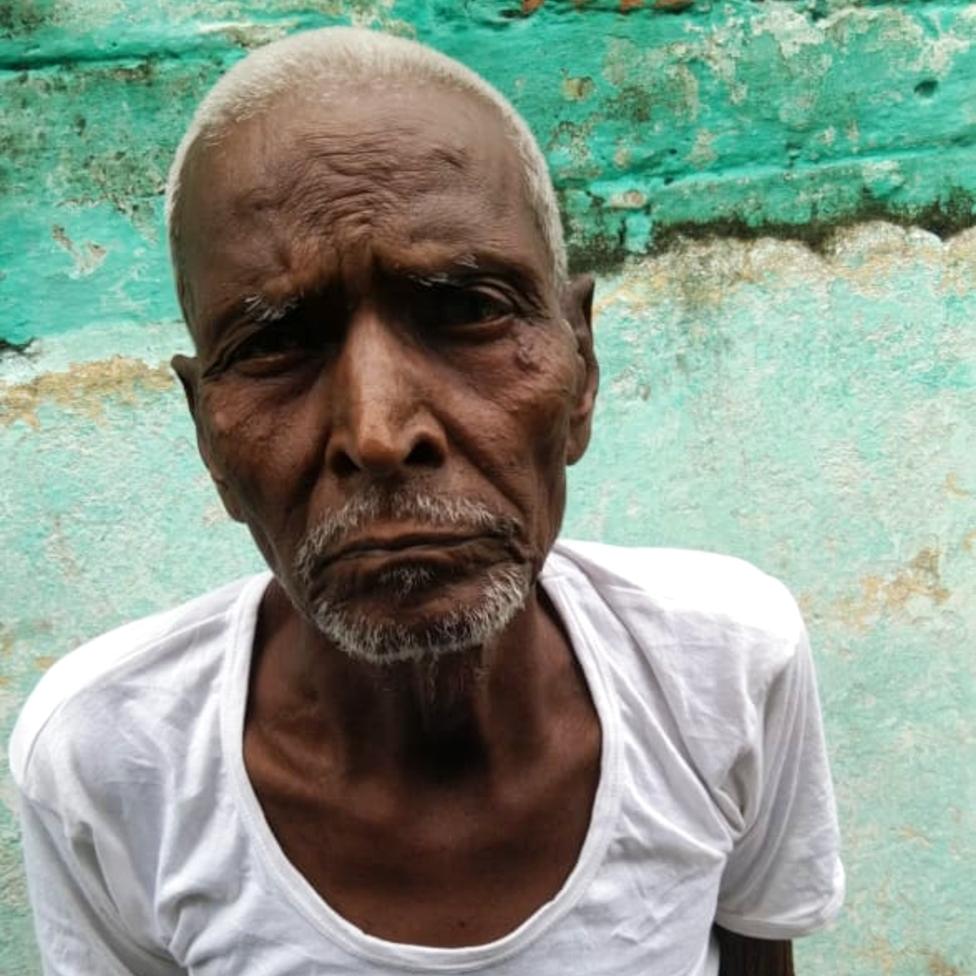
If you are dead, you cannot own land. It's a fact that has led to innumerable cases in India of people being registered dead and dispossessed of their property - and many have discovered that there is very little they can do about it, writes the BBC's Chloe Hadjimatheou.
Padesar Yadav is alive and well, so he was surprised to discover that - at least on paper - he is dead.
In his late 70s, after the death of his daughter and son-in-law, he unexpectedly found himself raising two grandchildren. So, to pay for their upbringing and education, he sold some land he had inherited from his father in the village where he was born.
A few months later he received a bizarre telephone call.
"The man I had sold the land to called me to say there was a legal case against me. He said my nephew was telling everyone I'd died and that an impostor had sold the land."
Yadav immediately travelled from Kolkata, where he lives now, back to the village in the Azamgarh district of Uttar Pradesh. When he got there, people were shocked to see him.
"They stared like they were seeing a ghost and said, 'You are dead! Your mourning rituals have been carried out!'"
Yadav says he and his nephew had been close and the younger man had often come to visit him when he travelled to the city. But when Yadav told him he was planning to sell the family land, the visits stopped.
He now learned that his nephew was claiming the land as his inheritance. So Yadav confronted him.
"He said, 'I've never seen this guy in my life. My uncle is dead.' I was so shocked,' says Yadav. "I said, 'But I am standing here, alive, right in front of you, how can you not recognise me?'"
Yadav says he cried for days but then he pulled himself together and called the Association for the Living Dead of India.
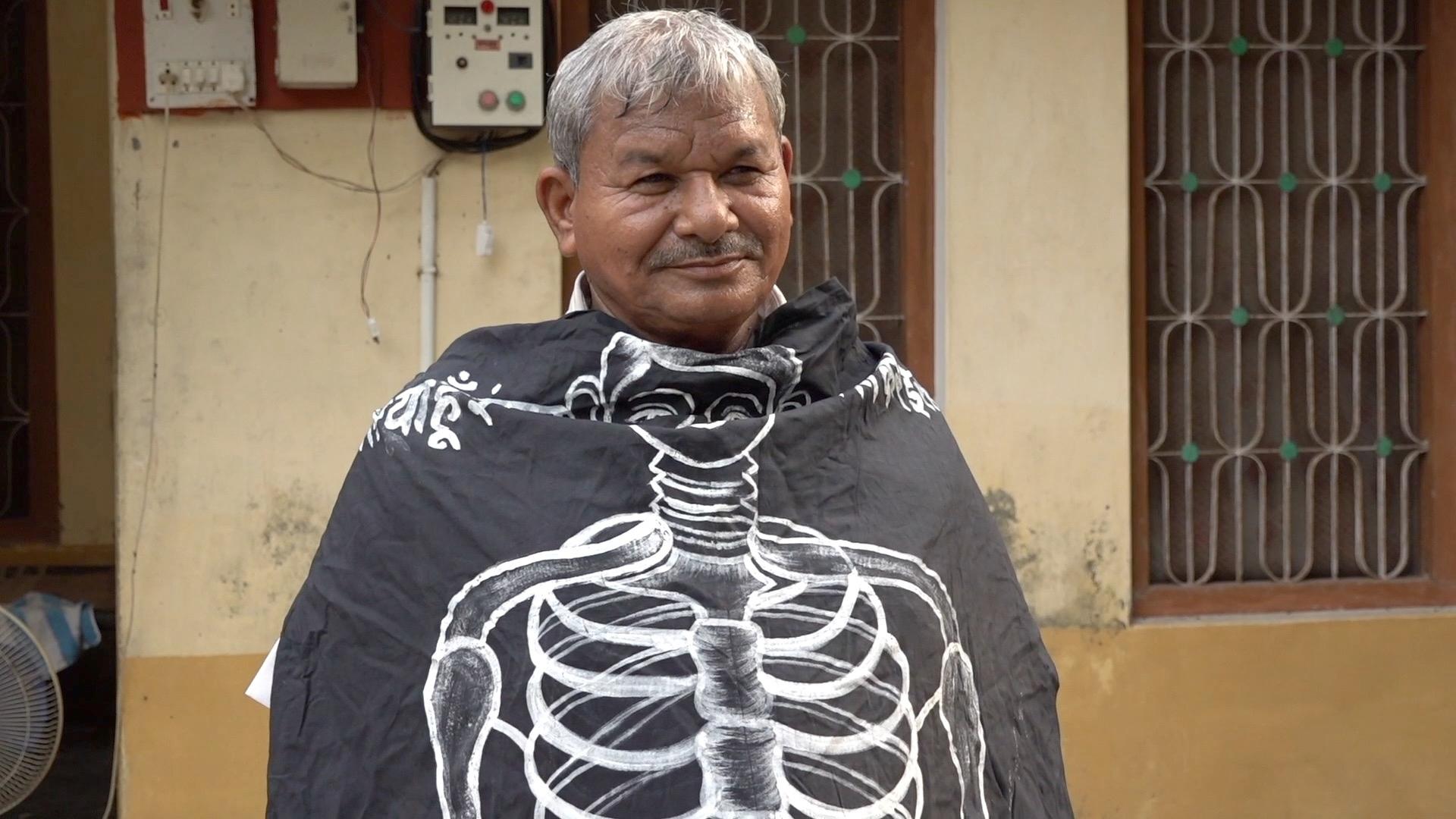
Lal Bihari Mritak wrapped in an Association of the Living Dead banner
The organisation is run by Lal Bihari Mritak, a man in his late 60s who knows a thing or two about being declared dead - he lived a third of his life as a supposedly dead man.
Bihari comes from a desperately poor family. He never learnt to read or write because he was sent at the age of seven to work in a factory making saris. In his early 20s he opened his own textile workshop in a neighbouring town, but he needed a loan to get the business going and the bank required collateral.
He therefore went to the local government office in his village, Khalilabad, also in Azamgarh district, hoping to get the deeds to land he had inherited from his father.
The village accountant looked up his name and found the documents - but he also found a death certificate that showed that Lal Bihari was dead.
Bihari's protestations that he couldn't possibly be dead because he was standing right there counted for nothing.
"It says here in the papers in black and white that you're dead," Bihari remembers being told.
When Bihari's death was registered with the local authority, the land and property he'd inherited from his father had passed from him to his uncle's family.
To this day Bihari says he isn't clear whether it was a clerical error or a scam by his uncle. In either case, Bihari was ruined. His workshop had to close and his family was left destitute. But Bihari was not about to lie down and accept his alleged death without a fight, and he soon realised that he was not alone. People all across the country were being swindled by relatives who were declaring them dead in order to take their land.
Bihari created the Association for the Living Dead to bring them together - by one estimate there are 40,000 living dead in the state of Uttar Pradesh alone, most of them poor, illiterate and low-caste - and began a campaign to draw attention to their plight.
He added the suffix mritak - meaning "the late" - to his name, becoming "the late Lal Bihari", and together with others in his situation he held protests to gain the media's attention. But it wasn't enough to change his situation.
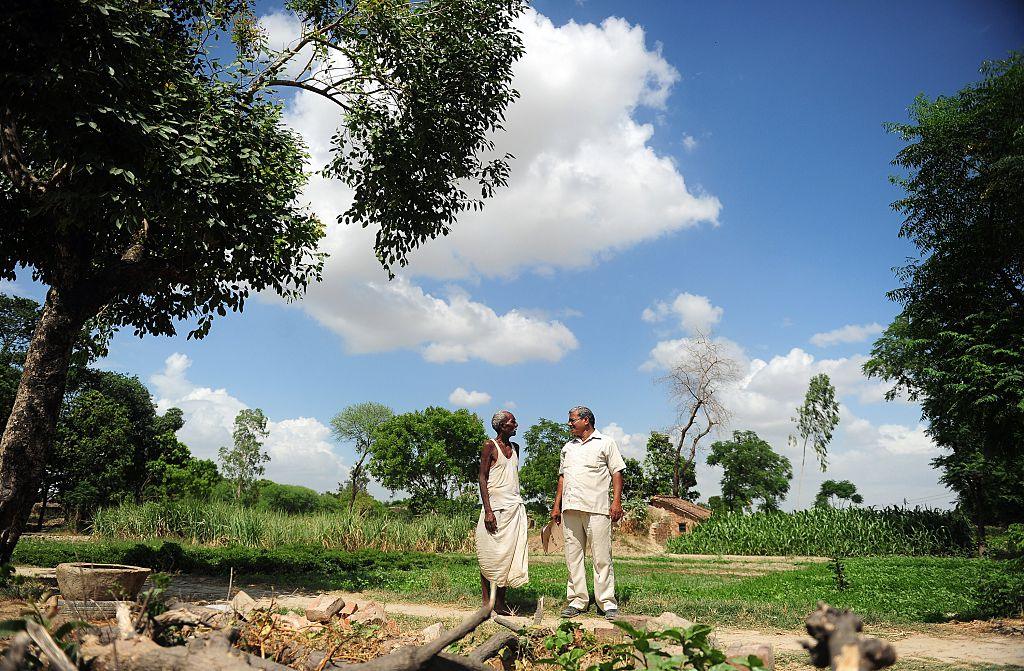
Lal Bihari Mritak (right) in 2015, meeting a farmer declared dead by his brother
He then decided to run in national elections and succeeded in getting a dead man's name on the ballot. When that wasn't enough to convince the authorities that he was alive, he almost killed himself by going on hunger strike three times.
Finally, in desperation, he decided to break the law by kidnapping his uncle's child. He was hoping the police would arrest him and in doing so be forced to accept that he was alive - after all, you can't arrest a dead man. But the police realised what he was up to and refused to get involved.
In the end Bihari found justice not as a result of any of his own creative efforts, but from the very system that had turned his life upside down in the first place. A new district magistrate in Azamgarh took a fresh look at his case and decided that, after 18 years of being told he was dead, Lal Bihari was alive after all.
Listen to India's Living Dead on BBC Radio 4's Crossing Continents, at 11:00 on Thursday 19 August
Bihari says that through his Association for the Living Dead he has supported thousands of people all across India who have faced similar struggles.
Many of them, he says, have not been as lucky as he was. Some have killed themselves after spending years fighting their case and eventually losing hope, while others died natural deaths before their cases were resolved.
One man who is right at the start of his struggle is Tilak Chand Dhakad. These days when the 70-year-old visits the farmland in Madhya Pradesh where he grew up he has to gaze at it from behind a fence. The old man has a score of health issues and knows he may not live long enough to ever walk through those fields again.
As a younger man Dhakad moved to the city in the hope of making a better income and a better life for his children. While he was away he rented his land to a couple.
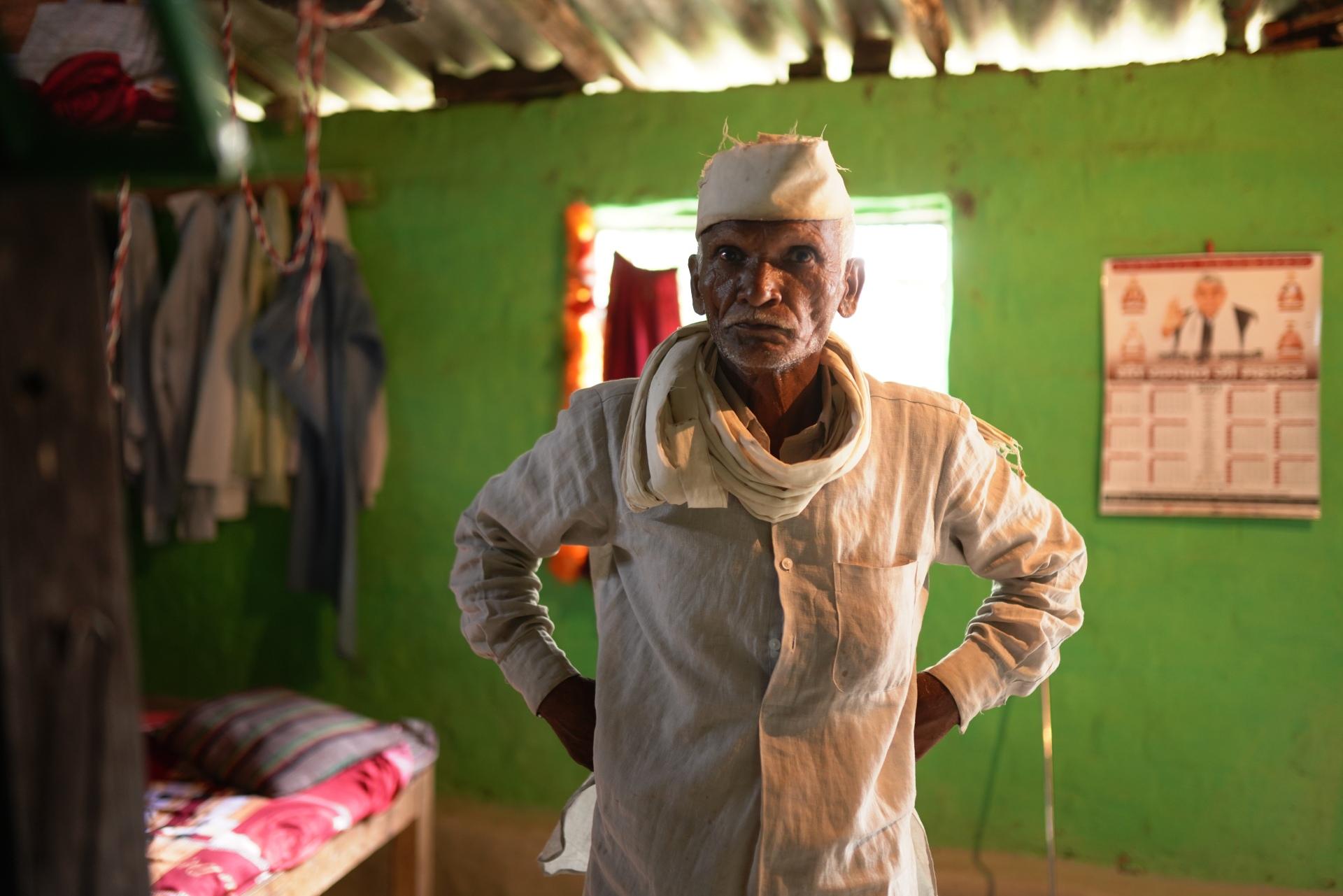
It was only when he returned to the village to sign some documents that he discovered he was no longer the owner of the land because he had supposedly passed away.
"The officer in the local authority office told me that I was dead. I thought, 'How could that happen?' I was so scared," he recalls.
Dhakad says he soon discovered that the married couple he had been renting his land to had registered him as dead, and the wife had then gone to court posing as his widow, saying she was happy to sign away the land.
When the BBC contacted the couple whom Dhakad accuses of taking his land they said they did not want to answer questions.
Anil Kumar, a lawyer who has fought several cases for the living dead, estimates that in Azamgarh, the province where Lal Bihari lives, there must be at least 100 people who have been declared dead prematurely.
Each case is complex, he says. Sometimes there are clerical errors, at other times public officials are bribed to draw up false death certificates.
Shaina NC, spokeswoman for the governing Bharatiya Janata Party (BJP), told the BBC that the current government has been very diligent in enforcing legislation to tackle corruption.
"In a country as large and diverse as India you could have a few stray cases which do come up time and again, but the majority is insulated by the good governance of the Prime Minister, Narendra Modi," she says.
"If there is a case of corruption there are enough provisions in parliament to make sure perpetrators are brought to task."
But Anil Kumar says, when these cases are the result of a scam, justice can be elusive. In one case he fought, it took six years to prove his client was alive - and more than 25 years later he is still waiting for a verdict in the case against the man who allegedly had his client declared dead.
"If these kinds of cases were fast-tracked so that the criminal gets punished, it would strike fear into people and prevent these kinds of crime," Kumar says.
It has been more than 45 years since Lal Bihari Mritak was declared dead and more than two decades since he managed to prove he was alive. But he still hosts, every year, a re-birthday party, with guests sitting round a large beautiful cake. As the knife slices into the intricate icing it becomes clear to his guests that it's just a decorated cardboard box - a gimmick.
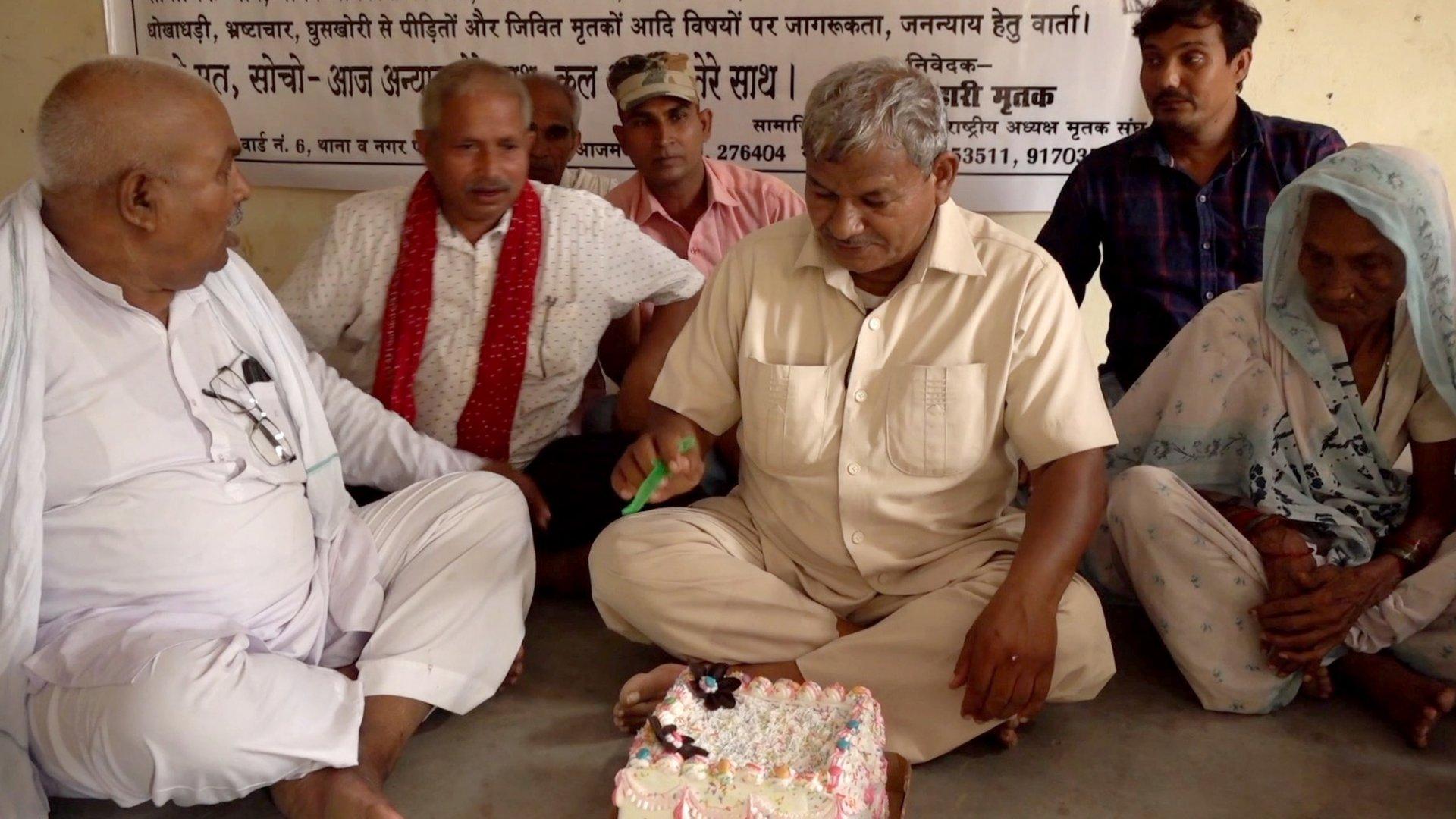
"Inside it's totally hollow. Some government officials are like that too - vacuous and unjust," he says.
"So I didn't cut this cake in celebration. It's a statement about the society in which we live."
Bihari says he still receives calls from people across the country who want his advice to help them prove they are alive, but at the age of 66 he is losing steam and is now contemplating retiring from the struggle.
"I don't have the money or the energy to run the Association for the Living Dead any more," he says, "and there's no-one to take it over."
He'd always hoped that the national media would champion the dispossessed, and that government would clamp down on the bribe-takers, but it hasn't happened.
The man who spent 18 years of his life trying to prove he was alive one day really will be dead, without having achieved the changes he was fighting for.
On-the-ground reporting by Piyush Nagpal, Ajit Sarathi and Praveen Mudholkar
You may also be interested in:
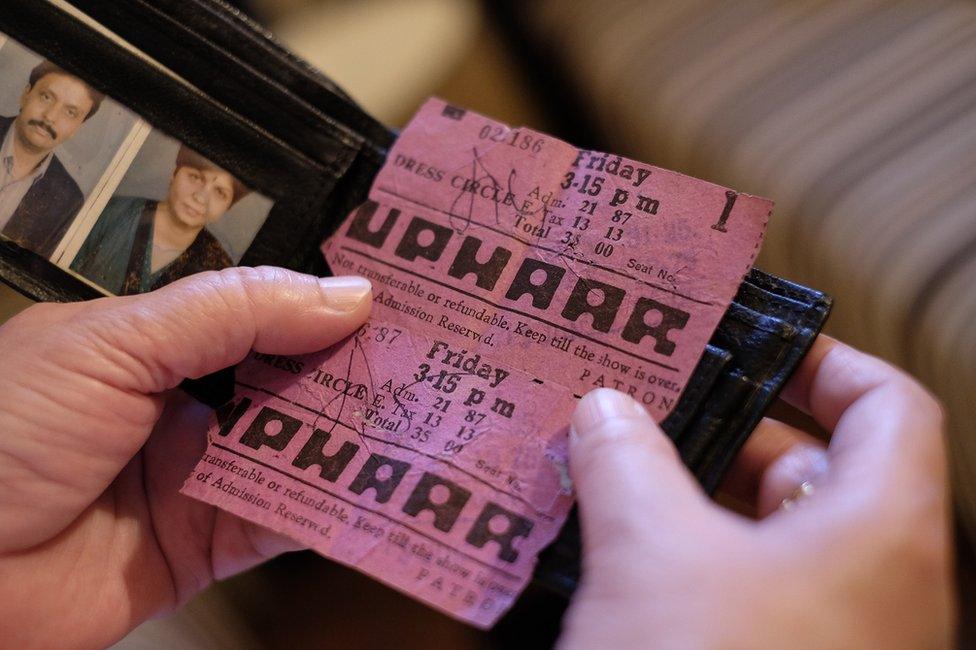
Neelam Krishnamoorthy's children loved watching films - but one afternoon a routine cinema trip ended in a moment of tragedy, and left Neelam fighting a decades-long battle for justice.